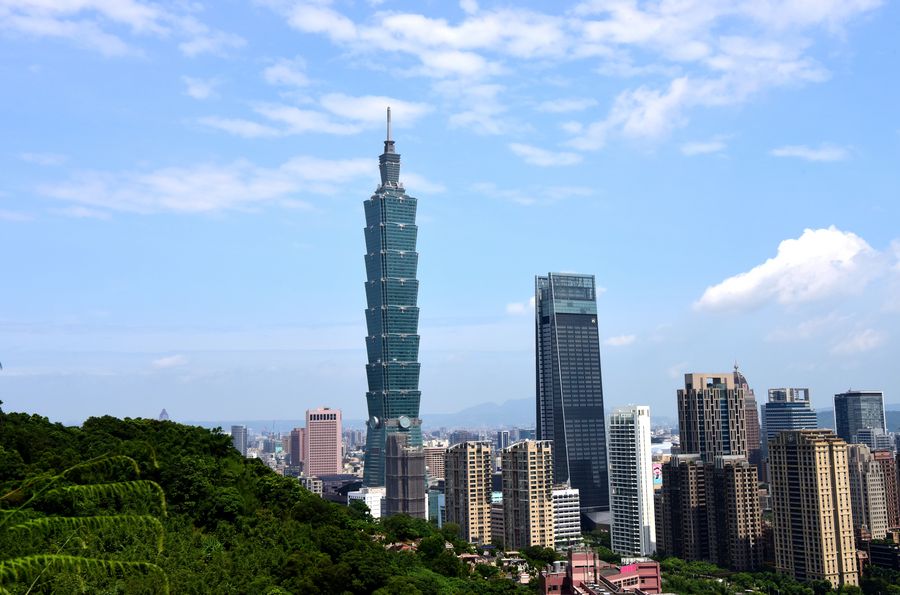Principles matter to address Taiwan question


On May 20, Taiwan will inaugurate a new leader. The new leader has a clean slate in which to deal with domestic and international situations. However, that clean slate doesn't come with approval to toss out the foundational rules and laws that support the world order.
We will return to Taiwan, but first we need to look at the most recent US military foray into the South China Sea. There is a connection between Taiwan and the Philippines.
Perhaps it is a coincidence — though anything involving the United States military is — that the US chose to hold naval exercises with the Philippines in the days leading to Lai Ching-Te's inauguration, which takes place on May 20.Granted, the Philippines isn't governed in the same way as Taiwan; nevertheless, one wonders why the US would do anything in the region right now to potentially increase tensions in the South China Sea.
The Navy defended its actions by suggesting the following: "The United States upholds freedom of navigation for all nations as a principle. The United States will continue to defend the rights and freedoms of the sea guaranteed to all. No member of the international community should be intimidated or coerced into giving up their rights and freedoms."
In other words, principles matter.
If they do, then the US must also continue to honor the three communiques relating to the mainland and Taiwan. A brief history lesson: The initial communique was written in 1972. In it, the US noted that "there is but one China and that Taiwan is a part of China". The communique also stated: the "United States Government does not challenge that position" and "reaffirms its interest in a peaceful settlement of the Taiwan question by the Chinese themselves".
The second communique followed in 1979. In it, the US began formal diplomatic relations with China. As part of that decision, the US recognized that the People's Republic of China was the sole legitimate governmental body for all of China, including Taiwan. The US did continue economic and cultural ties with Taiwan and that activity continues today.
The third communique was issued in 1982. Its primary feature was the acknowledgment by both countries that they wanted to strengthen cultural, economic, educational and other ties. The communique added that the US would continue to sell arms to Taiwan, and the US has proved to be quite proficient at that. The current administration is nearing $5 billion. And keep in mind, according to one estimate, that there is a backlog of more than $19 billion in such sales.
These three communiques remain valid, and rarely does a month go by in which either the president of the United States or his secretary of state again state publicly that Washington has no interest in undermining the One-China Principle.
And yet the US continues to provoke China, most especially with the military drills it holds in the South China Sea. Americans always defend such actions by saying they believe in freedom of the seas for all nations and that they have conducted exercises there for well over a century.
Such an argument seems inconsistent with the US wanting to affirm its role as the champion of peace and prosperity around the world. More importantly, if freedom of the seas is the governing idea, then any nation — friend or foe — can conduct exercises in international waters near the United States, no? We know what Washington's response to that would be.
With that as the background, we return to Lai's inauguration. He is expected to carry on with his predecessor's policies. Tsai Ing-wen saw nothing wrong with arguing that Taiwan should seek "independence", words defined, justifiably, by the mainland as crossing a red line. Likewise, she saw nothing wrong with inviting top US politicians to the island, knowing full well that the mainland would see this as a provocation. And she sought to downgrade cross-Strait ties.
But there is an element of caution that can't be forgotten. Lai's party no longer has control of the parliament; it is now in the hands of the Kuomintang, which wants to solidify relations with the mainland. Lai will be restrained, should he want his government to be the thorn in China's side that his predecessor's was.
Will the US show similar restraint?
It is incumbent on the United States to talk the talk and walk the walk when it comes to Taiwan. The One China Principle is part of the (Western-created) world order. Much like President Donald Trump was vilified for removing the US from key international agreements during his term in office, President Joe Biden — and all of his successors — must align words and actions: Taiwan is part of China, and deliberate actions that put that statement into question must cease.
Principles matter.
The author is department head and associate professor in the Communication and Organizational Leadership department at Robert Morris University.

































